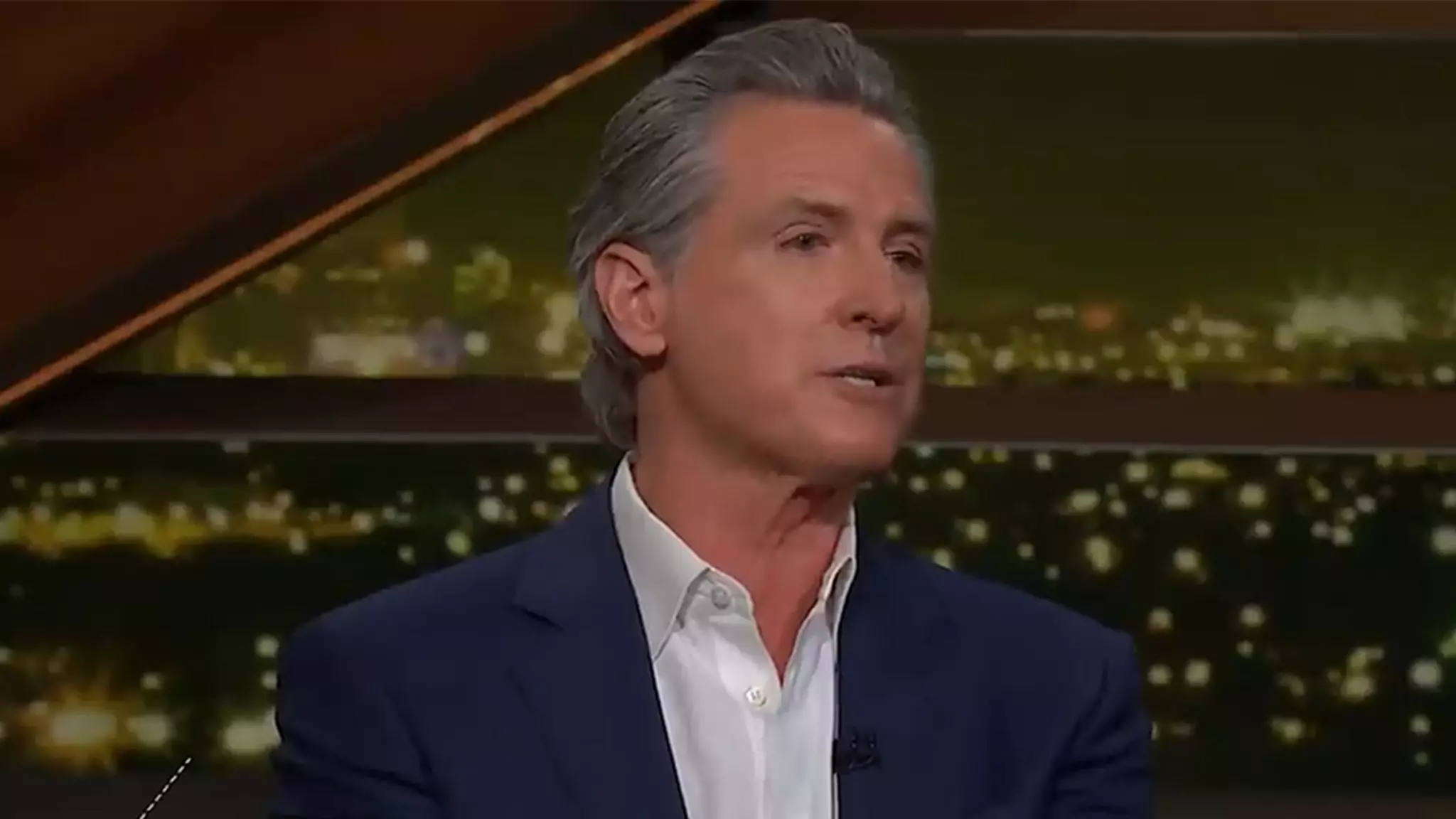In an era characterized by heightened political polarization, California Governor Gavin Newsom’s approach to engaging with conservative figures raises important questions about the future of the Democratic Party. During his appearance on Bill Maher’s “Real Time,” Newsom defended his podcast, “This Is Gavin Newsom,” as a necessary platform for dialogue across the political spectrum. This approach emphasizes a burgeoning recognition within Democratic circles that effective communication with Republicans is crucial if they hope to reclaim electoral victories.
What makes Newsom’s strategy particularly compelling is his candid acknowledgment of the Democratic brand’s current predicament. He stated plainly, “The Democratic brand is toxic now,” demonstrating an acute awareness of the challenges his party faces. It is one thing to aim for common ground in a hyper-partisan climate, but it is another to admit that one’s own party has lost its appeal among a significant section of the electorate. By openly discussing these dynamics, Newsom not only showcases his political acumen but also sets a standard for Democratic leaders to abandon defensive posturing in favor of proactive engagement.
Platforming: A Double-Edged Sword
Critics have raised concerns regarding the “platforming” of contentious figures like Steve Bannon and Charlie Kirk on Newsom’s podcast. Critics argue that by giving space to these right-wing voices, even in an effort to foster dialogue, Newsom legitimizes viewpoints that many find harmful or regressive. Nonetheless, as Maher pointed out, avoiding conversation can lead to further alienation, which only solidifies the divisions in American politics.
This trade-off between promoting dialogue and potentially lending credence to extreme ideologies is complex. However, Newsom seems convinced that the risk is worth it, reflecting a broader trend among some Democrats who are beginning to recognize that inaction will not bridge the divide. By engaging with the other side, Newsom hopes to dismantle the adversarial walls that keep voters entrenched in their ideological corners.
A Call for Self-Reflection
Both Newsom and Maher emphasize the necessity of self-reflection within their respective parties. Maher’s critique of President Trump’s followers as “cult-like” brings a vital perspective to the discussion: a movement is only as strong as its willingness to evaluate its own beliefs and actions. For Democrats to effectively counter the prevailing narratives of their opponents, party leaders must first look inward to identify weaknesses and missteps that have led to their diminished appeal.
Newsom’s strategy aligns with Maher’s assertion that both parties could benefit from looking in the mirror. He proposes a recalibration of Democratic messaging, focusing on common human experiences rather than ideological divides. This approach underscores a clear pivot towards understanding and empathy, which may be essential in recuperating the trust of voters across the aisle.
Reimagining Political Engagement
Ultimately, Newsom’s willingness to engage with conservative figures on his podcast is more than a tactical maneuver; it’s a sign of potential evolution within the Democratic Party. If Democrats wish to shake off the tarnished reputation that Newsom describes, they must create avenues for meaningful discourse, even with those who hold opposing views. As elections approach, the feasibility of this strategy will be tested, but it signals a forward-thinking approach that contrasts sharply with the hardliner tactics often employed in today’s political landscape.
The survival of democracy may very well depend on the ability of leaders like Newsom to foster understanding and cooperation, rather than merely reinforcing the existing barriers that keep conflicting ideologies at odds.

